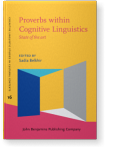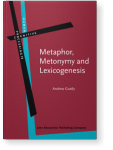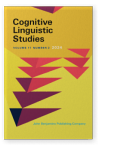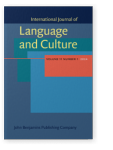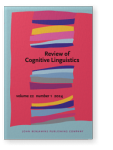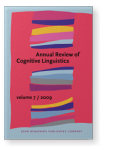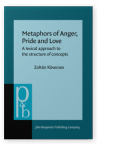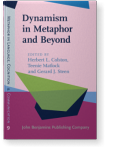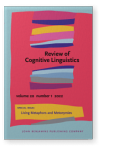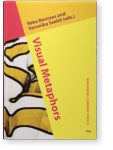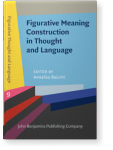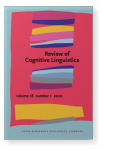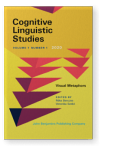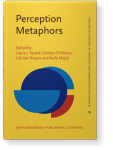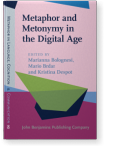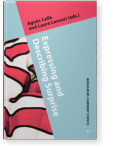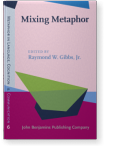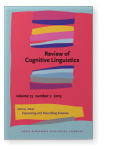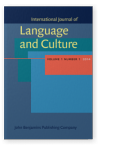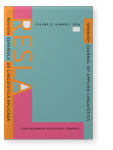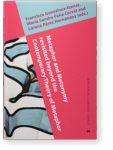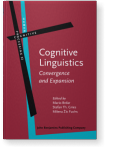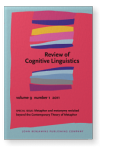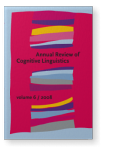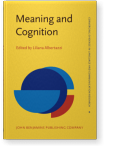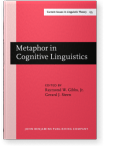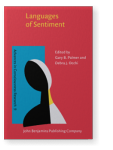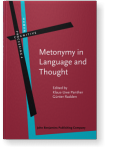Zoltán Kövecses
List of John Benjamins publications for which Zoltán Kövecses plays a role.
Book series
Journals
ISSN 2213-8722 | E-ISSN 2213-8730
ISSN 2214-3157 | E-ISSN 2214-3165
ISSN 1877-9751 | E-ISSN 1877-976X
Yearbook
ISSN 1572-0268 | E-ISSN 1572-0276
Title
Metaphors of Anger, Pride and Love: A lexical approach to the structure of concepts
Zoltán Kövecses
[Pragmatics & Beyond, VII:8] 1986. vii, 147 pp.
Subjects Pragmatics | Semantics
2024 Chapter 1. Proverbs in Extended Conceptual Metaphor Theory Proverbs within Cognitive Linguistics: State of the art, Belkhir, Sadia (ed.), pp. 26–39 | Chapter
In the chapter, I provide an account of metaphorical proverbs within the new framework of extended conceptual metaphor theory, or ECMT, for short (Kövecses 2020). I rely especially on the multilevel and contextualist aspects of this view. I argue that ECMT can account for why many proverbs are… read more
2022 Extended CMT and the dynamic systems theory of metaphor: A comparison Dynamism in Metaphor and Beyond, Colston, Herbert L., Teenie Matlock and Gerard J. Steen (eds.), pp. 131–142 | Chapter
In the paper, I try to systematically compare what Gibbs calls the “dynamic systems view” of metaphor with what I call “extended conceptual metaphor theory.” I suggest that both views share the assumption that the totality of our experiences can contribute to metaphor production and… read more
2022 The heart of the matter: A matter of the heart: The crucifixion of Jesus from a cognitive semantic perspective Living Metaphors and Metonymies, Brdar, Mario and Rita Brdar-Szabó (eds.), pp. 91–103 | Article
Why should Jesus die? I attempt to investigate the symbolic roots and significance of the crucifixion by means of the conceptual tools and methodology of cognitive semantics. In particular, I propose that we approach the meaning of Jesus’ death on four symbolic levels:
the level… read more
2022 Visual metaphor in extended conceptual metaphor theory Visual Metaphors, Benczes, Réka and Veronika Szelid (eds.), pp. 15–32 | Chapter
My goal in the chapter is to examine a variety of visual experiences that appear to evoke visual metaphors. This is a range of experience types that extends from “sign-like” visual experiences to “non-sign-like” visual experiences. I propose that visual metaphors are evoked by paintings through… read more
2020 A multi-level view of metaphor and some of its advantages Figurative Meaning Construction in Thought and Language, Baicchi, Annalisa (ed.), pp. 71–88 | Chapter
This chapter focuses on the way in which we think about our conceptual system and puts forward a number of questions related to its essential structures in terms of their schematicity. It is proposed that image schemas, domains, frames and mental spaces are interconnected in metaphorical… read more
2020 An extended view of conceptual metaphor theory Review of Cognitive Linguistics 18:1, pp. 112–130 | Article
A major insight of Conceptual Metaphor Theory (CMT) is that it added a strong, empirically testable cognitive dimension to the study of metaphor that is capable of changing the way we think about metaphor not only in language, but also thought and action, and, ultimately, the way we do philosophy… read more
2020 Visual metaphor in extended conceptual metaphor theory Visual Metaphors, Benczes, Réka and Veronika Szelid (eds.), pp. 13–30 | Article
My goal in the paper is to examine a variety of visual experiences that appear to evoke visual metaphors. This is a range of experience types that extends from “sign-like” visual experiences to “non-sign-like” visual experiences. I propose that visual metaphors are evoked by paintings through… read more
2019 Chapter 16. Perception and metaphor: The case of smell Perception Metaphors, Speed, Laura J., Carolyn O'Meara, Lila San Roque and Asifa Majid (eds.), pp. 327–346 | Chapter
The general issue I address in the paper is this: How is the concept of smell linguistically coded in English, as examined from a cognitive linguistic perspective? I break down this larger theoretical issue into three sub-issues: One sub-issue concerns what the lexis of smell in English reveals… read more
2019 Chapter 6. The lexical vs. corpus-based method in the study of metaphors Metaphor and Metonymy in the Digital Age: Theory and methods for building repositories of figurative language, Bolognesi, Marianna, Mario Brdar and Kristina Š. Despot (eds.), pp. 147–174 | Chapter
In the past 15–20 years, there has been an increasing tendency to study metaphors found in real data (large corpora, specific discourses, conversations, etc.). What became known as “corpus-linguistic methods” of metaphor study, distinguish themselves from a prior way of studying metaphor that is… read more
2017 Surprise as a conceptual category Expressing and Describing Surprise, Celle, Agnès and Laure Lansari (eds.), pp. 7–26 | Article
In this paper, I examine the concept of surprise from a cognitive linguistic perspective. As previous studies indicate, surprise is a not-quite-prototypical emotion category. My focus will be on the structure and content of surprise as an emotion category, as this can be revealed on the basis of… read more
2016 Chapter 1. A view of “mixed metaphor” within a conceptual metaphor theory framework Mixing Metaphor, Gibbs, Jr., Raymond W. (ed.), pp. 1–16 | Article
How does conceptual metaphor theory handle mixed metaphors? Several metaphor scholars argue that mixed metaphor is a phenomenon that conceptual metaphor theory cannot handle. Their argument is that, given the claims of conceptual metaphor theory, mixed metaphors should not occur at all. This is… read more
2015 Surprise as a conceptual category Expressing and Describing Surprise, Celle, Agnès and Laure Lansari (eds.), pp. 270–290 | Article
In this paper, I examine the concept of surprise from a cognitive linguistic perspective. As previous studies indicate, surprise is a not-quite-prototypical emotion category. My focus will be on the structure and content of surprise as an emotion category, as this can be revealed on the basis of… read more
2014 Creating metaphor in context International Journal of Language and Culture 1:1, pp. 21–41 | Article
The issue of context has been, in the main, neglected in cognitive linguistic and much other work on how conceptual systems change and vary. In most recent work on conceptual systems, the issues of embodied cognition and the universal nature of cognitive operations have been emphasized. By… read more
2014 Lexicography and cognitive linguistics Revista Española de Lingüística Aplicada/Spanish Journal of Applied Linguistics 27:1, pp. 118–139 | Article
The lexicon of a language is not an unstructured list of words. In this paper, we exemplify some of the basic conceptual structures that cognitive linguists work with and we discuss their potential applications to lexicographic work. Specifically, we focus on the possible advantages of using… read more
2013 Recent developments in metaphor theory: Are the new views rival ones? Metaphor and Metonymy revisited beyond the Contemporary Theory of Metaphor: Recent developments and applications, Gonzálvez-García, Francisco, María Sandra Peña-Cervel and Lorena Pérez-Hernández (eds.), pp. 11–25 | Article
Several scholars have proposed alternative views to conceptual metaphor theory (see, for example, Ortony, 1993; Barnden, 2006; Wilson and Carston, 2006, 2008; Vega, 2007; Gibbs, 2008). How are the modified, refined, and alternative theories related to each other and standard conceptual metaphor… read more
2011 The biblical story retold: A cognitive linguistic perspective Cognitive Linguistics: Convergence and Expansion, Brdar, Mario, Stefan Th. Gries and Milena Žic Fuchs (eds.), pp. 325–354 | Article
In this chapter I offer one, or a small set of, possible interpretation(s) of the basic story of the Bible. I suggest that the symbolic meaning of the story derives in large part from conceptual structures and conceptual mechanisms that are shared by a large number of speakers of English and other… read more
2011 Recent developments in metaphor theory: Are the new views rival ones? Metaphor and metonymy revisited beyond the Contemporary Theory of Metaphor: Recent developments and applications, Gonzálvez-García, Francisco, María Sandra Peña-Cervel and Lorena Pérez-Hernández (eds.), pp. 11–25 | Article
Several scholars have proposed alternative views to conceptual metaphor theory (see, for example, Ortony, 1993; Barnden, 2006; Wilson and Carston, 2006, 2008; Vega, 2007; Gibbs, 2008). How are the modified, refined, and alternative theories related to each other and standard conceptual metaphor… read more
2008 Conceptual metaphor theory: Some criticisms and alternative proposals Annual Review of Cognitive Linguistics: Volume 6, Ruiz de Mendoza Ibáñez, Francisco José (ed.), pp. 168–184 | Article
Despite its popularity in and outside cognitive linguistics, cognitive metaphor theory (CMT) has received a wide range of criticisms in the past two decades. Several metaphor researchers have criticized the methodology with which metaphor is studied (emphasizing concepts instead of words), the… read more
2000 Force and emotion Meaning and Cognition: A multidisciplinary approach, Albertazzi, Liliana (ed.), pp. 145–168 | Chapter
Using the schemas of force dynamics to examine how the emotions are conceptualized in natural language, this essay conducts detailed analysis of the relationship between the metaphors of cause as force, and force (qua opponent) as a source domain of emotions. The author’s main thesis is that the… read more
1999 Metaphor: Does it constitute or reflect cultural models? Metaphor in Cognitive Linguistics: Selected papers from the 5th International Cognitive Linguistics Conference, Amsterdam, 1997, Gibbs, Jr., Raymond W. and Gerard J. Steen (eds.), pp. 167 ff. | Article
1999 Language And Emotion Concepts: What Experientialists and Social Constructionists Have in Common Languages of Sentiment: Cultural constructions of emotional substrates, Palmer, Gary B. and Debra J. Occhi (eds.), pp. 237 ff. | Article
1999 Towards a Theory of Metonymy Metonymy in Language and Thought, Panther, Klaus-Uwe and Günter Radden (eds.), pp. 17–59 | Article
